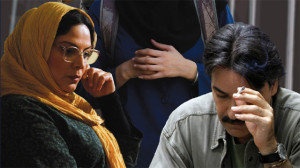In the past few years, the most popular movies about Iran have come from outside the country — most notably the United States (Argo) and France (Persepolis). Whether made by Iranian expatriates or non-Iranians, the films play up Iran’s image as a nation of tumult and revolution. Even movies by Iranian filmmakers that have achieved a semblance of popularity in the West often emphasize Iran’s draconian government policies and the way average Iranians are exploited or find a way to circumvent cultural restrictions (No One Knows About Persian Cats). How Iranians see themselves. How outsiders see Iranians. It’s a cinematic tug-and-pull that has been happening for more than 50 years, evident by The Poppy Is Also a Flower, a 1966 film with a Who’s Who of ’60s movie stars (including Omar Sharif, Yul Brynner, Marcello Mastroianni, Angie Dickinson, and Eli Wallach) that is screening at this year’s Iranian Film Festival.
By showcasing a mix of rediscovered movies and new dramas and documentaries, the festival — held in San Francisco this Saturday and Sunday, September 28-29, 2013 — provides a unique window into Iran at a time when the country is constantly hovering in the news because of its (alleged) nuclear ambitions, its involvement in Syria’s war, and its tenuous relationship with the United States and U.S. allies. The headlines disappear at the festival, giving way to characters’ interior struggles with family relationships and personal demons that are the central focus of several inspired features. In For Shahrzad, the central figure, a young, pregnant woman with an abusive father, navigates her way through his overbearing ways, and never hesitates to confront him (“why did you bring me into this world if you could not afford it?”) and the other people in her life. Much of the film is set in a hospital’s emergency-room lobby, where a cast of memorable characters (a cynical supervisor, the pregnant woman’s husband, the taxi driver who brought her to the hospital) meet and where flashbacks ensue that fill in the dramatic back story of the main character’s life.

Everything Is Fine Here
In Everything Is Fine Here, a young writer who’s newly engaged and newly acclaimed, with an invitation to lead a prestigious writing workshop in Germany, is sexually attacked, setting off a series of events that put a severe strain on her marriage-to-be and her relationship with her parents.
Two short films at the Iranian Film Festival — Charisma and Return — give indelible glimpses into lives that reach a frail precipice. In Charisma, an old man with a cane sits on a crowded bus across from a boy who recognizes the humanity in this elderly stranger. In Return, a multi-generational family waits for the return of an important member who’s been fighting in the Iran-Iraq War. A flying kite, held up in the air by young children, becomes the symbol of transition in this short film that is cinematic poetry.

 No Burqas Behind Bars
No Burqas Behind Bars The Poppy Is Also a Flower
The Poppy Is Also a Flower
